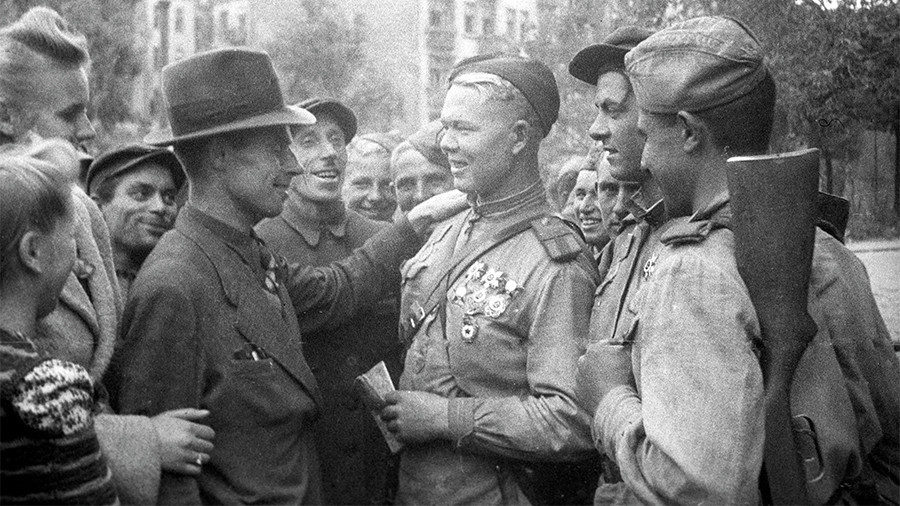
Dokumenterne fra det russiske forsvarsministeriums centrale arkiv, der "aldrig før er blevet offentliggjort som åbent tilgængelige kilder" indeholder detaljer om den støtte, som Polen modtog fra Sovjetunionen under dets befrielse fra nazisterne i 1944-1945. Ifølge papirerne forsynede SSSR befolkningen i befriede områder med "mad, lægehjælp, kørertøjer, brændstof og råmaterialer til industrivirksomheder." Nødhjælpen kom fra de materielle reseserver i Sovjetunionens Røde Hær og Folkekommisariatet for SSSR, sagde forsvarsministeriet i en meddelelse.
Kommentar: Delvist oversat af Sott.net fra Declassified documents show that Soviet military gave vast assistance to Poland during WWII
"During the period between March and November 1945 alone, more than 1.5 billion rubles (around $283 million) worth of food in the prices of 1945 was provided for the sake of the Polish population and the sowing campaign in the country," the ministry said. "The Provisional Government of Poland was supplied with over 130,000 tons of food, 20,000 tons of cotton, 100,000 tons of leather, and more than 2,000 trucks during the second and third quarters of 1945," the documents revealed.
The documents detail the supply of 8,000 tons of meat, as well as seeds and agricultural machinery for sowing, to Poland. These were backed by receipts signed by the receiving Poles. The Red Army was also involved in rebuilding railroads and bridges blown up by the Nazi forces retreating from Poland.
The Defense Ministry also published a deal between the Soviet military command and the Provisional Government of Poland regarding the fate of the industrial equipment and other German property abandoned by the Nazis on the Polish territory. "It was noted that all [German] plants and equipment in Poland without exception were transferred to the Poles. Their disassembling and transfer were strictly forbidden," it said.
Last June, the Polish parliament passed a package of legislative amendments, which extended the ban on propaganda relating to communism or any other totalitarian regime to names on buildings and other architectural sites. Earlier this week, the local authorities in the Polish town of Szczecin started dismantling a monument to Soviet soldiers, in accordance with the law, which puts many similar monuments in the country in jeopardy.
The Russian ambassador to Poland, Sergey Andreyev, has slammed the Polish "decommunization law," in an interview with RT, saying: "What is the connection between these memorials and communist propaganda? They have been installed in memory of the 600,000 Soviet soldiers and officers who died while liberating Poland in 1944-45. These are monuments to people who saved Poland, because if it was not for them, there would be no Poland at all today - either communist or capitalist. And there would be no Poles as a people."
Russia's Defense Ministry is publishing the historic document on its website as part of the "Memory against forgetting" digital project, aimed at the preservation of historical accuracy and countering attempts to falsify history.



Læserkommentarer
dig vores Nyhedsbrev